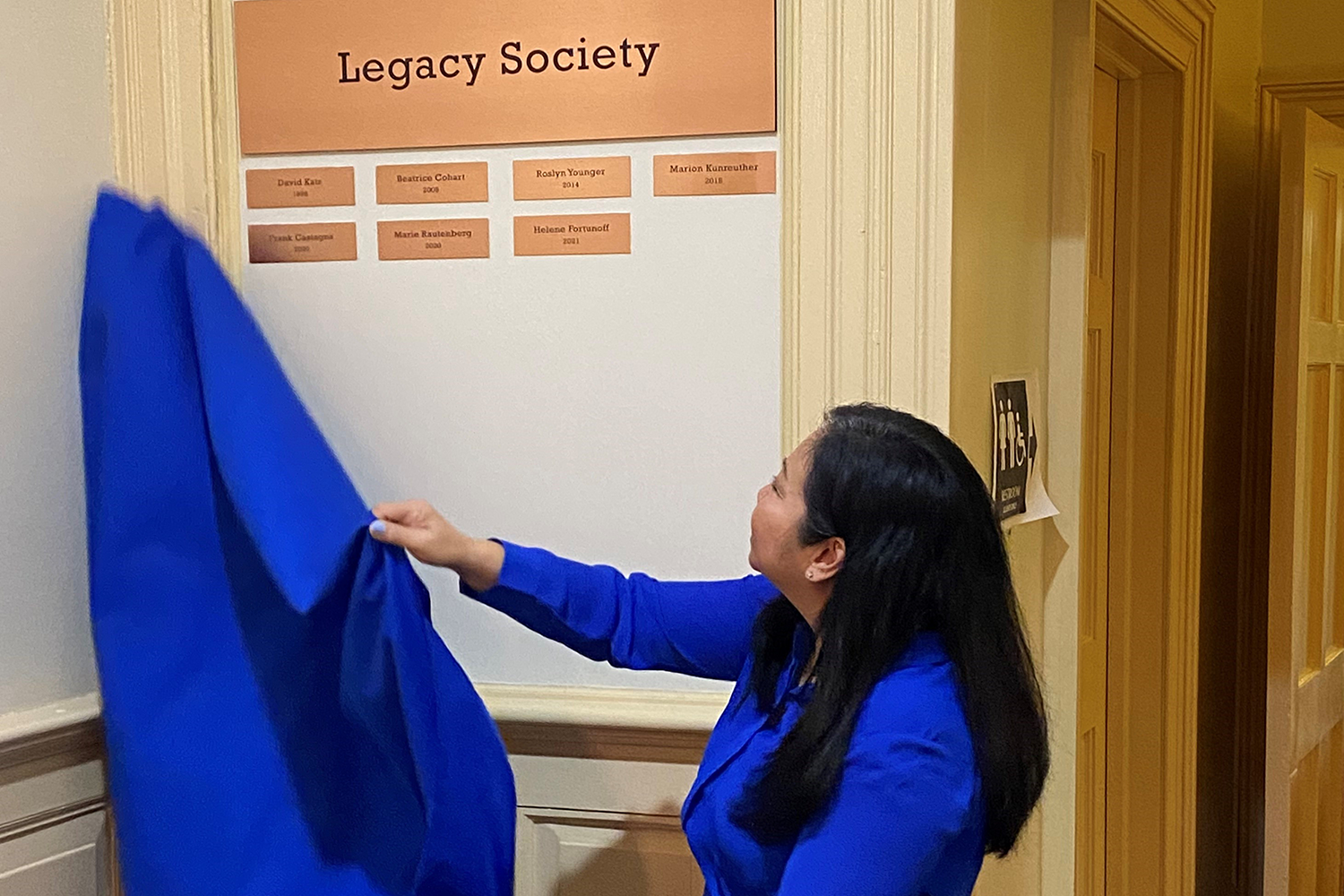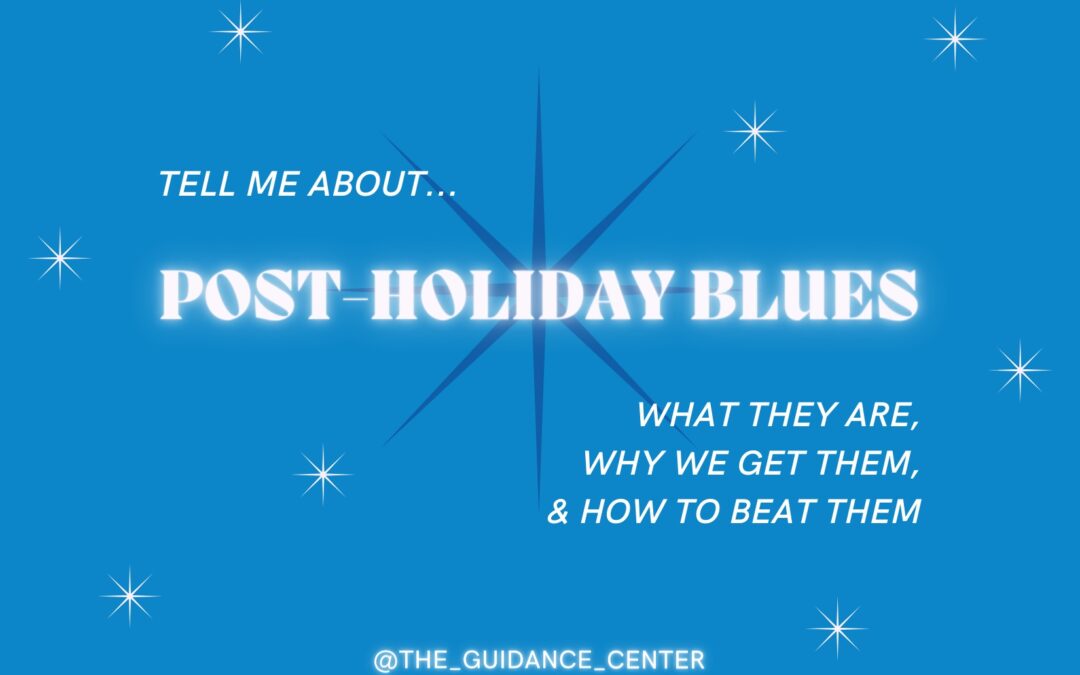
by North Shore Child & Family Guidance Center | Feb 19, 2023 | Blog
By Guest Blogger Emily Graham
As the parent of a child with special needs, I often find myself feeling exhausted. It can be a lot of work to meet my child’s unique needs, and there are often barely enough hours in the day to get everything done. What’s more, I often feel like I’m operating on constant high alert, always ready to deal with whatever challenges my child may face.
As a result, fatigue is a common problem for parents like me. And it’s not just physical fatigue – I often find myself feeling emotionally and mentally drained as well. It can be hard to keep up with everything, and it’s easy to feel like I’m not doing enough. But I try to remind myself that I’m doing the best I can, and that’s all anyone can ask for. Raising a child with special needs is a unique challenge, but it’s also a rewarding one.
And even on the toughest days, I know that it’s all worth it.
What’s more, I know I’m not alone here. According to research, over 3 million children in the U.S. have a disability of some kind. These kids face many challenges — and so do their parents. Parenting a child with special needs is often a full-time job, and it’s easy to feel overwhelmed by all the daily responsibilities. It’s no surprise, then, that many special needs parents often experience parental fatigue. Though parental fatigue can feel inescapable, this article will help you find ways to mitigate the problem.
Address Any Potential Health Struggles
If you’re not sure whether you are experiencing parental fatigue, there are a few red flags you can look for. Have you been losing sleep? Do you feel like you’re failing as a parent? Have you been struggling with depression or other mental health issues? If you answered yes to these questions, there’s a good chance you’re dealing with parental fatigue.
The latter of these symptoms — mental health struggles — is a particularly concerning issue. If you are depressed, it’s important to seek help from a psychiatric professional. You may receive a prescription for antidepressants. The medication chosen will depend on your symptoms, whether you are on any other medication, and whether you have pre-existing conditions. Although antidepressants aren’t always the right treatment, your provider can help you monitor potential side effects and gauge whether the medication is effective.
Seeking treatment for your mental and physical health is an important part of lowering your fatigue levels. You can improve both by making improvements to your lifestyle, too. Adopting a diet that’s rich in nutrients and low in processed foods has been shown to reduce the inflammation that’s associated with depression. It will also likely improve your energy levels and physical health.
Make Time for Self-Care Activities
Taking care of your physical and mental health is important, but it’s also the bare minimum. In order to effectively combat fatigue, you should truly invest in yourself — and this means creating a self-care regimen. It’s important to find a balance between parenting and self-care, though. Overindulging in self-care can leave your family feeling neglected.
One of the best forms of self-care is pursuing a personal goal. If you’ve always dreamed of going back to school, for example, there are options you can explore. Say you’re interested in learning skills to open your own business. There are various business degrees available through online universities that can help you achieve these goals. What’s more, with multiple start times and the ability to learn from home on your own schedule, you won’t have to worry about making time to attend a traditional in-person class.
Don’t Succumb to Burnout from Parenting
There are so many responsibilities to juggle when you’re a parent to a child with special needs. If you’re dealing with depression, though, it’s imperative not to ignore the problem. Similarly, if you have dreams of going back to school, you shouldn’t put them on the back burner. Ignoring your own needs will only worsen parental fatigue. Find a way to enjoy life and be the best parent you can be — that’s all you can do!
Bio: Emily Graham is the creator of Mighty Moms. She believes being a mom is one of the hardest jobs around and wanted to create a support system for moms from all walks of life. On her site, she offers a wide range of info tailored for busy moms — from how to reduce stress to creative ways to spend time together as a family.

by North Shore Child & Family Guidance Center | Feb 10, 2023 | Anton Media, In The Media
By Dr. Nellie-Taylor Walthrust
Getting a driver’s license is a rite of passage that teenagers have been celebrating since the early days of automobiles. Driving makes teens feel more independent than ever before, and it can also provide a break for parents, who spend a great deal of their time carting their kids back and forth from practices and other activities.
But the celebration of this newfound freedom necessitates a crucial conversation and the drawing of a line in the sand: Let them know that driving while using alcohol, marijuana or any other substances is forbidden, and start having these conversations when they are young.
With marijuana use now legal for people 21 years of age and older, your kids may be of the mindset that it’s not a big deal. That’s far from the truth. It’s illegal to drive while under the influence of alcohol and weed or other drugs. According to the NY State Governor’s Traffic Safety Committee, driving under the influence of marijuana subjects you to the same penalties as driving under the influence of alcohol.
And there’s good reason: Marijuana impacts areas of the brain that control perception, balance, coordination, memory and judgment. It can slow reaction times, decrease attention and make it difficult to follow the road and stay in your lane.
We know you don’t want your kids to use marijuana or alcohol, period. But the reality is that many of them do. Having the conversation about safety and driving will not make them any more likely to experiment – in fact, it might have the opposite effect.
Here are some sobering statistics:
- 23% of teens admit they have driven under the influence of alcohol, prescription drugs or marijuana.
- Teen drivers 16-19 have a fatal crash rate almost three times as high as drivers ages 20 and older.
- The percent of crash deaths involving cannabis more than doubled from 9% in 2000 to 21.5% in 2018.
- 24% of teens reported that within the previous month, they had been a passenger in a car with a driver who had been drinking alcohol or using drugs.
As a parent, what can you do to minimize the risks?
The Centers for Disease Control and Prevention suggests creating a Parent-Teen Driving Agreement that clearly sets expectations and limits. Sit with your teen and write down the hazards of driving while impaired and the consequences for breaking the rules. Put it on your refrigerator and update it as your teen gains experience and more driving privileges. (Visit cdc.gov for a sample agreement.)
If your teen plans to go to a party, make sure you talk to the parents where the festivities are being held. Ask if there will be supervision and if alcohol is being served—and if your teens are under 21, the answer should be a resounding no.
Despite taking all precautions, your teens may find themselves in a situation where they are being pressured to drink or use drugs. Tell them that you will be willing and able to get them at any time during the night—and that if they or their friends have been drinking or using drugs, they should contact you for a ride.
As parents, we must do all we can to educate our kids about the dangers of driving while impaired, but we also need to face the reality that even “good” kids can start heading down a dangerous path. Keep the lines of communication open, and if you suspect there may be a problem, consider contacting a professional who is trained in alcohol and substance use.
Bottom line: Let your teen know that driving requires their full attention, so marijuana, alcohol or any kind of substances are not allowed – and that means no texting, too!
 Dr. Nellie Taylor-Walthrust is the Director of at North Shore Child & Family Guidance Center’s Leeds Place, which operates an Adolescent Outpatient Chemical Dependency Treatment Program. Substance use services include counseling youths who are alcohol and drug abusers, children who live in families with a parent who is suffering from alcoholism or drug addiction and youths who have co-occurring chemical dependency and mental health problems. Prevention services are offered to local school districts. Call (516) 626-1971 to learn more.
Dr. Nellie Taylor-Walthrust is the Director of at North Shore Child & Family Guidance Center’s Leeds Place, which operates an Adolescent Outpatient Chemical Dependency Treatment Program. Substance use services include counseling youths who are alcohol and drug abusers, children who live in families with a parent who is suffering from alcoholism or drug addiction and youths who have co-occurring chemical dependency and mental health problems. Prevention services are offered to local school districts. Call (516) 626-1971 to learn more.
Photo credit (for the driving photo): Adobe Stock, By Habitante Stock

by North Shore Child & Family Guidance Center | Feb 10, 2023 | Blog
North Shore Child & Family Guidance Center is so grateful to those who donate to our mission of bringing hope and healing to kids and families struggling with mental health challenges such as depression, anxiety and suicidal thinking. Without your generosity, we couldn’t provide these lifesaving services.

There are so many ways to give, in ways both large and small. Some of our donors choose to put us in their estate plans, like our dear friends highlighted on our Legacy Wall of Respect at our Roslyn Heights headquarters. Others have made substantial gifts to support our Douglas S. Feldman Suicide Prevention Project, and they are honored with beautiful brass name plaques on our Butterfly Wall.

Others contribute through a Qualified Charitable Distribution, also commonly known as an IRA Charitable Rollover gift.
Many of our supporters buy tickets and/or sponsorships to our special fundraisers held throughout the year, including our Spring Luncheon, which will be held on April 27th, our Jonathan Krevat Memorial Golf & Tennis Classic on June 5th and our spectacular Annual Gala on September 28th.

Financial support also comes to us in the form of corporate matching gifts and/or workplace giving opportunities. Check to see if your company can match your gift.
In addition, monthly donations through our $10 on the 10th program, memorial gifts and gifts in honor of a loved one are always appreciated.
But financial contributions aren’t the only way to support our work. Options include joining one of our event committees, volunteering at our Children’s Center at Nassau County Family Court or connecting us with your company.
Whatever way you give back, please know that your generosity means the world to us – and to the children and families we are so privileged to serve.
We’re here for them because YOU are here for us. Thank you for your generosity!
If you wish to learn more about how to make a gift of any kind, please contact Lauren McGowan, Director of Development, at 516-626-1971, ext. 320 or email her at lmcgowan@northshorechildguidance.org

by North Shore Child & Family Guidance Center | Feb 1, 2023 | Blog
By Guest Blogger Aieshah Ashfer
As we all start to get used to the rhythm of the new year by embracing new beginnings, we may begin to feel as if we are in an unwanted emotional slump. Going back to work, school and the rigid routines we’ve formed for ourselves after a period of rest and relaxation isn’t easy. This is especially the case when bouncing back from the holiday season. The letdown we feel after the holidays can be described as the “post-holiday blues.”
What are post-holiday blues?
Post-holiday blues share many of the same characteristic symptoms of an anxiety or mood disorder: insomnia, low energy, irritability, difficulty concentrating and anxiousness. The abrupt withdrawal of stress hormones after a major event – in this case, the holidays – can greatly impact our biological and psychological well-being. Even if your holidays weren’t as merry as they could have been, the brain heavily exaggerates the realities of day-to-day life, making the return to the mundane seem profoundly more anxiety-inducing and saddening than it actually is.
What causes post-holiday blues?
The exact cause of these feelings will vary from person to person, but often they are triggered by unrealistic expectations of what the holiday season should be like. Post-holiday blues are often the result of failing to put boundaries on demands and then feeling sad about the outcome.
How do I cope with post-holiday blues?
There are several ways to cope if you feel down after the holidays. One way to do this is through a small gratitude practice. List the things you are thankful for and make that a daily practice combined with meditation; that simple act can really reframe the way that you manage your day and manage some of these stressors. Exercise can also help you deal with feelings of sadness after the holidays. Physical activity reduces stress and stimulates the production of feel-good chemicals, also known as endorphins. So can volunteering and giving back to your local community. It can also help to seek out humor, such as watching funny movies or TV shows, because laughter releases endorphins. Finding a trusted person to talk to about your feelings, such as a friend or a therapist, is especially beneficial. It can be harder to manage sadness or guilt if you keep them bottled up, but talking through those feelings can help to validate them.
Dealing with post-holiday blues isn’t easy. It is normal to feel these emotions after a big anticipated event like the holidays, but knowing that there are numerous healthy ways to cope with this letdown makes it much easier to get through it.

by North Shore Child & Family Guidance Center | Feb 1, 2023 | Blog
By Guest Blogger Aieshah Ashfer
Aieshah: Can you tell me what you do daily as a High School Social Worker?
Mrs. Sheets: Every day is different. I typically have each period of the day scheduled by students who want to come in for a group session or an individual session. The framework that I use is dialectical behavioral therapy (DBT) and cognitive behavioral therapy (CBT) and I also utilize the strengths perspective. I use DBT to help students understand and accept their difficult feelings, and learn skills to manage them. CBT is used to connect thoughts, behaviors, and emotions together. I use the strengths of each student and treat them with unconditional positive regard in our sessions. Overall, I try to destigmatize reaching out for help and I try to make the environment seem comfortable and warm for students to be able to reach out.
Aieshah: You are around students all the time. What are the main stressors in high school? Any specific ones this time of year?
Mrs. Sheets: At our school, I think there is a lot of pressure to be successful. That’s the number one stressor that I see here. I think students internalize that pressure and then what comes out is anxiety and depression, fear of failure, and perfectionism. At times I also see students neglecting their sleep, social relationships, and passions; these are all the things that make us human. I think sometimes we focus so much on being intelligent and successful, that we forget the other things that balance us out. I also feel students can’t talk to people in their lives for support and I think sometimes they feel what they’re going through is not valid. At this time of year, midterms seem to highlight students’ pressure on themselves and their need to succeed as well as the neglect of their health. These are the biggest stressors.
Aieshah: What are some ways to properly cope with the stress of finals and midterms?
Mrs. Sheets: When it comes to big tests like midterms, finals and even SATs, I feel that preparation is key. The best way to take these on is to make a schedule to study regularly weeks before. I see a lot of students at times will procrastinate and cram all their studying for the last day, and I think that builds even more pressure. Even studying for five minutes a day is better than not studying at all and cramming. Let yourself balance your activities so that you’re not sacrificing sleep and social interaction. Everything should be within balance, especially during these testing seasons. Since midterms also come after the holidays I think we’re left with a lot of mixed emotions; around the holidays can be one of the most depressing times of the year. Self-care is tuning into that and recognizing that this time of the year is stressful, and doing something that helps you; this can be listening to music or spending time talking to your friends. Have a little thing to look forward to each day, like meditating or exercise.
Aieshah: Is there a quick meditation technique you would recommend for stressed-out students?
Mrs. Sheets: I think you mentioning “quick” is very important. Students often say they can’t take the time out to meditate during the day. This is where our technology comes in and is so valuable to us. If you just go on YouTube to find a one-minute meditation tutorial, you’re able to take a short break and relax. I tell students who don’t want to compromise any time that they can meditate while they’re doing any task– for example, brushing their teeth. Put on a one-minute meditation video so you’re able to take a break. Even a small meditation break is an important one.
Aieshah: What are some resolutions students should keep to avoid academic stress and burnout for the new year?
Mrs. Sheets: I think a resolution students should set is to focus on progress, not perfection. This can be done through positive self-talk; it sounds unrealistic at times but can really bring us up from negative places. Even when it comes to homework, instead of saying “I have to do this,” start to say “I want to do this because I want to earn a positive grade.” Keeping a neutral mindset after setbacks as well can really help you in the future. But being able to talk to yourself positively is extremely important and will help you to more easily accomplish tasks. Positive self-talk and progress over perfection should be the things we bring into 2023.



 Dr. Nellie Taylor-Walthrust is the Director of at North Shore Child & Family Guidance Center’s Leeds Place, which operates an Adolescent Outpatient Chemical Dependency Treatment Program. Substance use services include counseling youths who are alcohol and drug abusers, children who live in families with a parent who is suffering from alcoholism or drug addiction and youths who have co-occurring chemical dependency and mental health problems. Prevention services are offered to local school districts. Call (516) 626-1971 to learn more.
Dr. Nellie Taylor-Walthrust is the Director of at North Shore Child & Family Guidance Center’s Leeds Place, which operates an Adolescent Outpatient Chemical Dependency Treatment Program. Substance use services include counseling youths who are alcohol and drug abusers, children who live in families with a parent who is suffering from alcoholism or drug addiction and youths who have co-occurring chemical dependency and mental health problems. Prevention services are offered to local school districts. Call (516) 626-1971 to learn more.




